Tyrosine Kinase
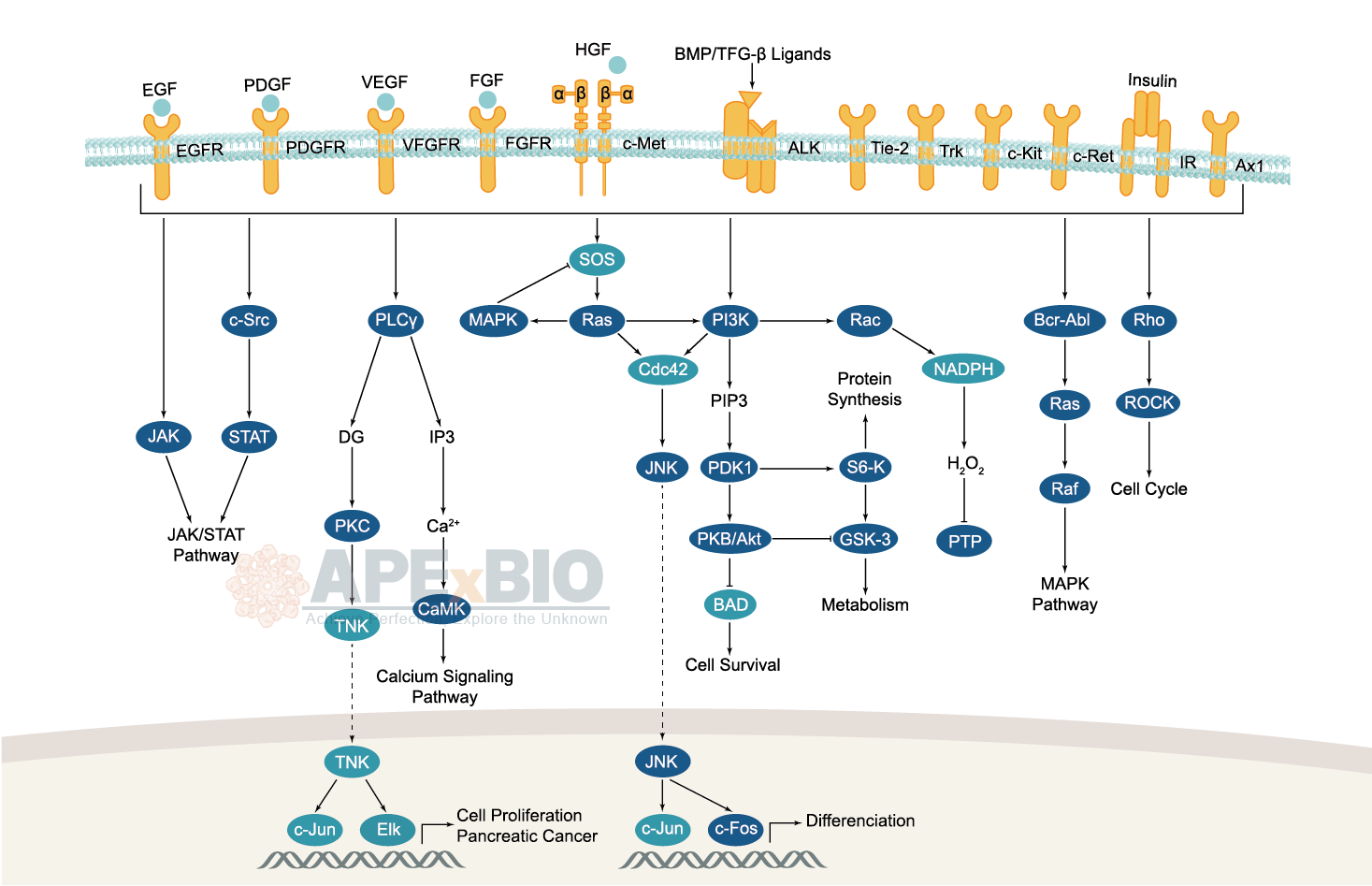
Receptor tyrosine kinases bind to extracellular ligands/growth factors, which promotes receptor dimerization and autophosphorylation of receptor tyrosine residues. This triggers a cascade of downstream events through phosphorylation of intracellular proteins that ultimately transduce the extracellular signal to the nucleus, causing changes in gene expression. Receptor tyrosine kinases include EGFR/ErbB, PDGFR, VEGFR, FGFR and MET subfamilies etc. Dysfunctions in tyrosine phosphorylation are linked to oncogenic transformation. In additions, various adaptor and effector proteins couple to carboxy-terminal of an active kinase. For instance, binding of the GRB2 adaptor protein activates EGFR and MAPK/ERK signaling.
Non-receptor tyrosine kinases involve many well-defined proteins (e.g. the Src family kinases, c-Abl, and Jak kinases) and other kinases which regulates cell growth and differentiation. For example, Src family kinases are curial for activating and inhibitory pathways in the innate immune response.
-
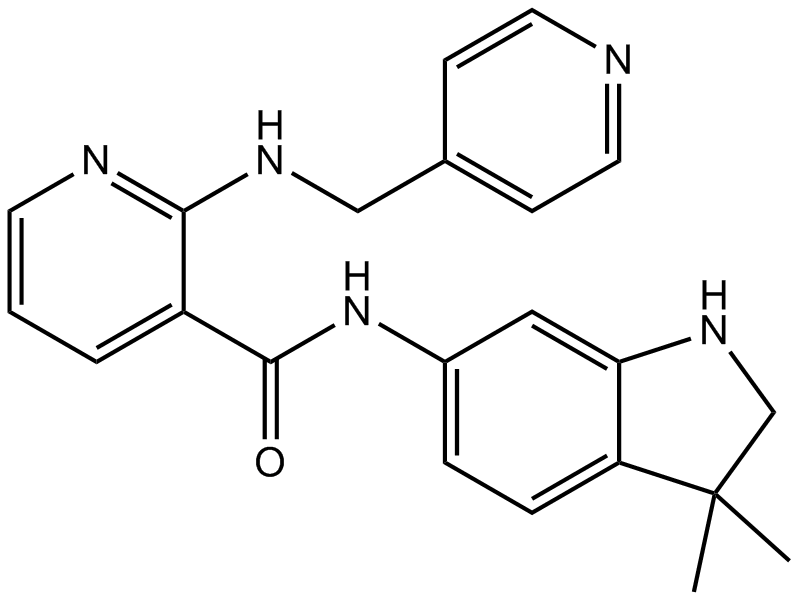 A3632 MotesanibTarget: VEGFRSummary: Inhibitor of Flk-1/Flt-4/PDGFR-/c-Kit
A3632 MotesanibTarget: VEGFRSummary: Inhibitor of Flk-1/Flt-4/PDGFR-/c-Kit -
 A3660 Nilotinib monohydrochloride monohydrateSummary: Bcr-Abl inhibitor
A3660 Nilotinib monohydrochloride monohydrateSummary: Bcr-Abl inhibitor -
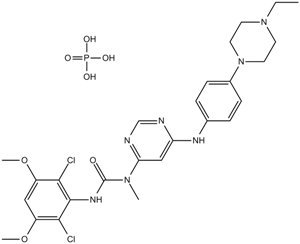 A3673 NVP-BGJ398 phosphateSummary: FGFR inhibitor
A3673 NVP-BGJ398 phosphateSummary: FGFR inhibitor -
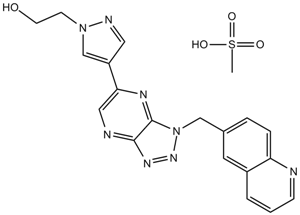 A3712 PF-04217903 methanesulfonateTarget: c-METSummary: C-Met inhibitor,selective and ATP-competitive
A3712 PF-04217903 methanesulfonateTarget: c-METSummary: C-Met inhibitor,selective and ATP-competitive -
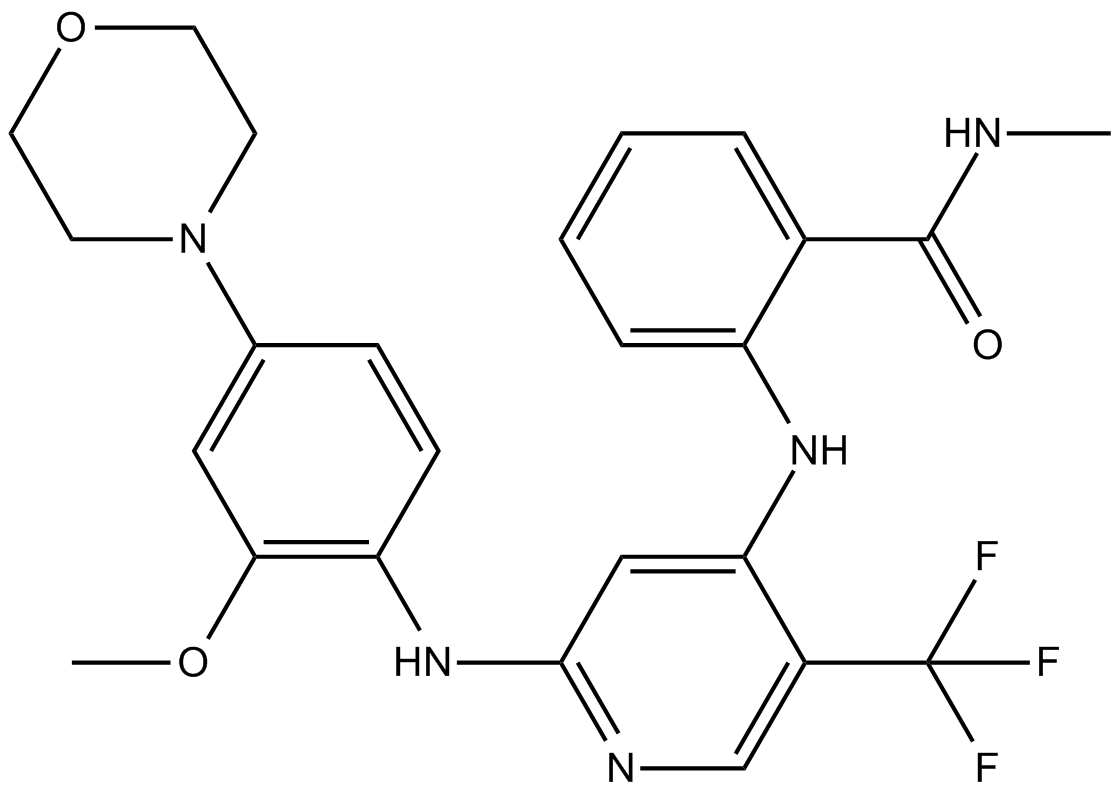 A3730 PND-11861 CitationSummary: Potent FAK inhibitor
A3730 PND-11861 CitationSummary: Potent FAK inhibitor -
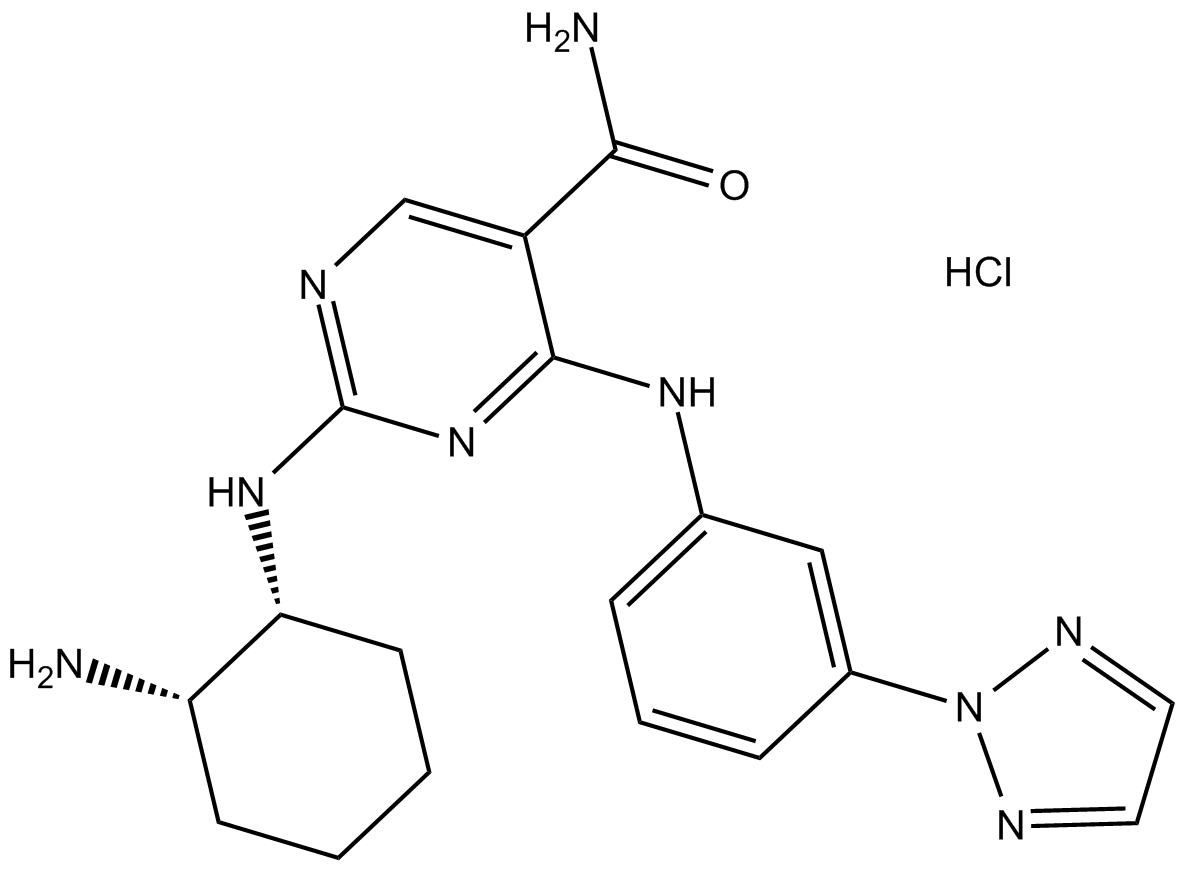 A3736 PRT062607 Hydrochloride1 CitationTarget: SykSummary: SYK inhibitor,potent and selective
A3736 PRT062607 Hydrochloride1 CitationTarget: SykSummary: SYK inhibitor,potent and selective -
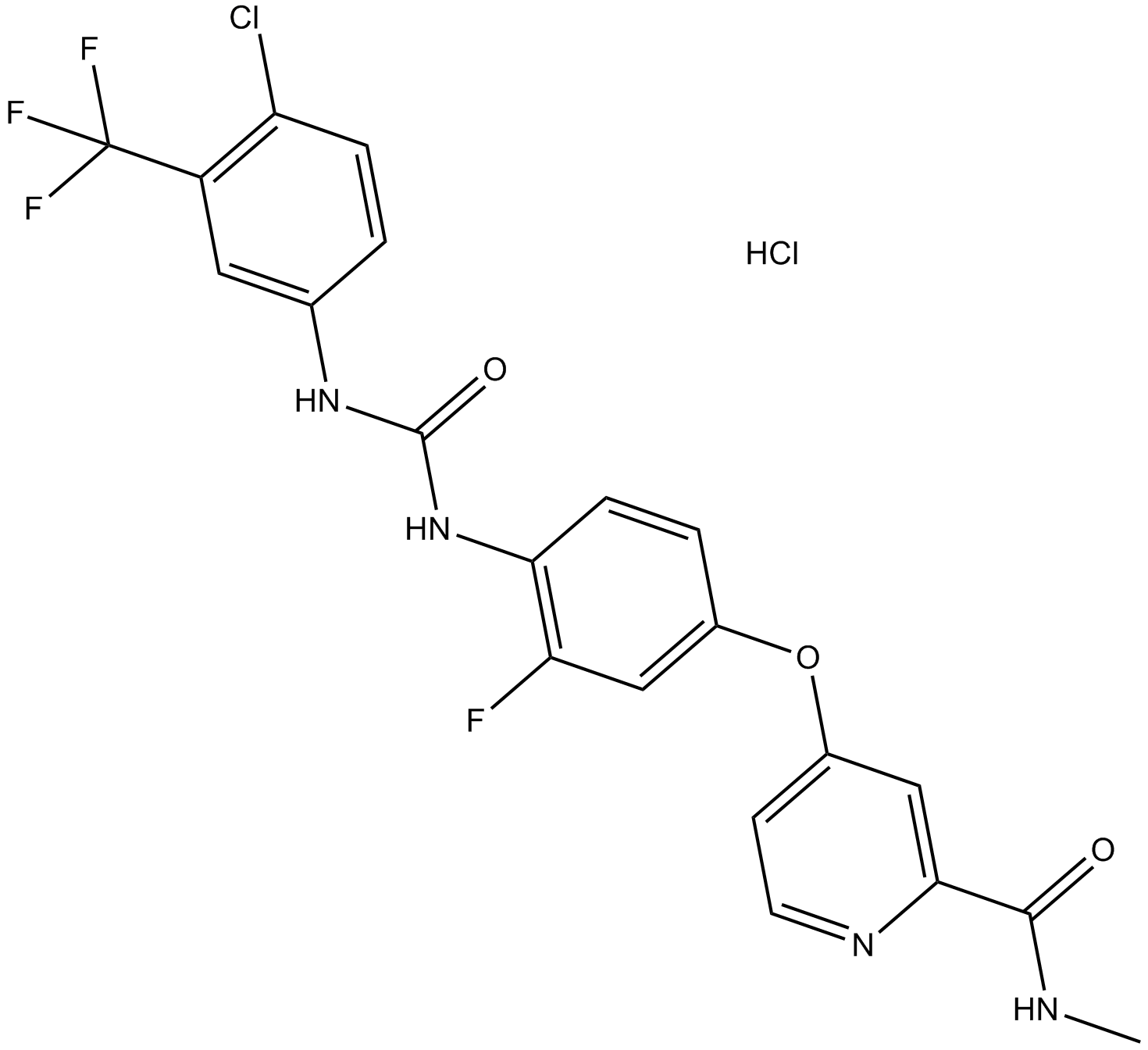 A3750 Regorafenib hydrochlorideTarget: Raf|VEGFR|PDGFR|c-Kit|c-RETSummary: Tyrosine kinase inhibitor
A3750 Regorafenib hydrochlorideTarget: Raf|VEGFR|PDGFR|c-Kit|c-RETSummary: Tyrosine kinase inhibitor -
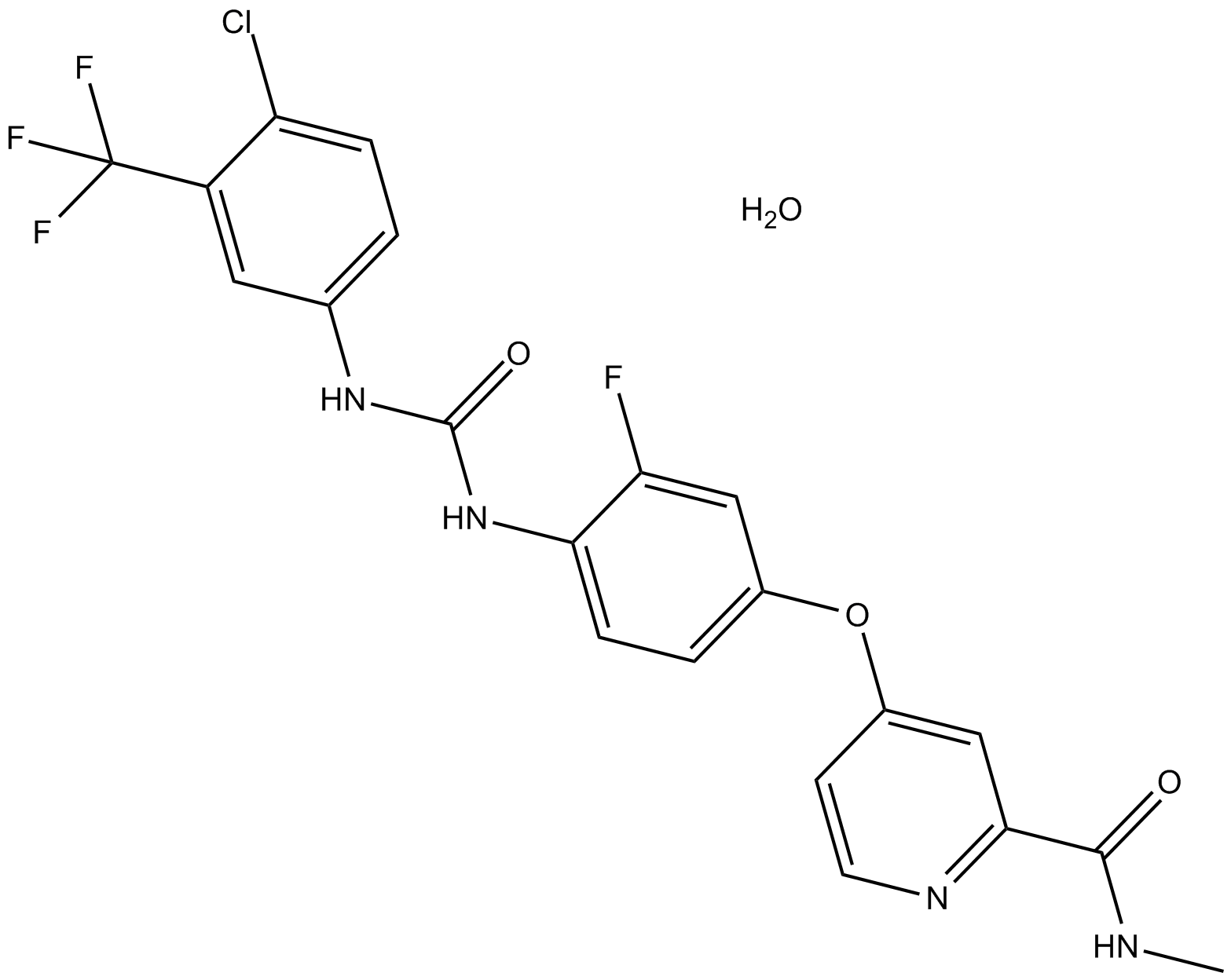 A3751 Regorafenib monohydrateSummary: Tyrosine kinase inhibitor
A3751 Regorafenib monohydrateSummary: Tyrosine kinase inhibitor -
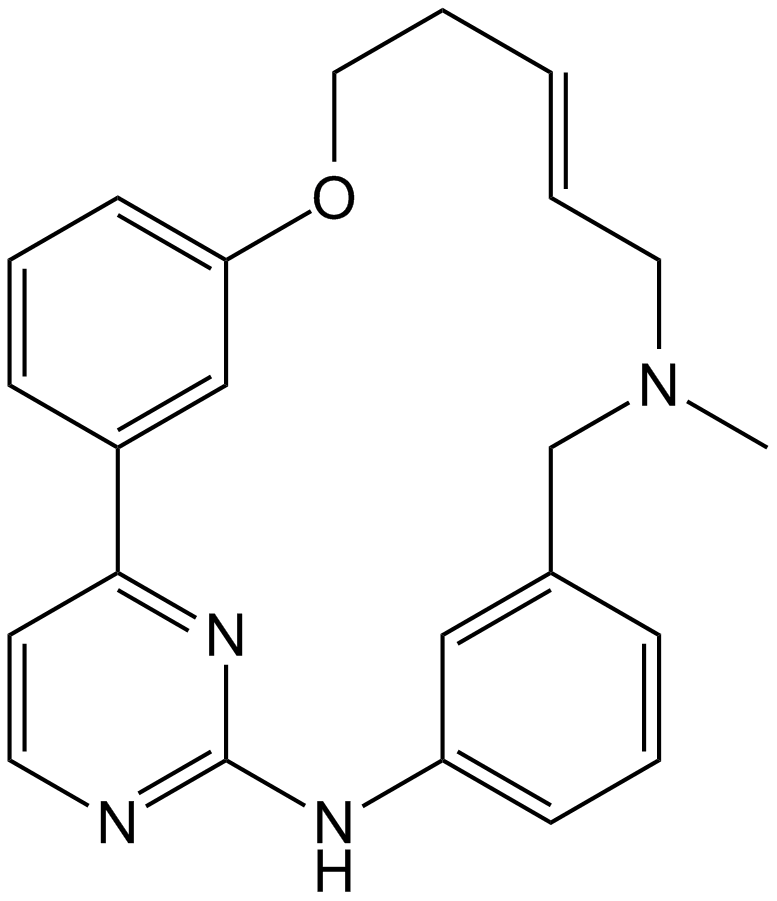 A3794 SB1317Summary: CDK,JAK and FLT inhibitor
A3794 SB1317Summary: CDK,JAK and FLT inhibitor -
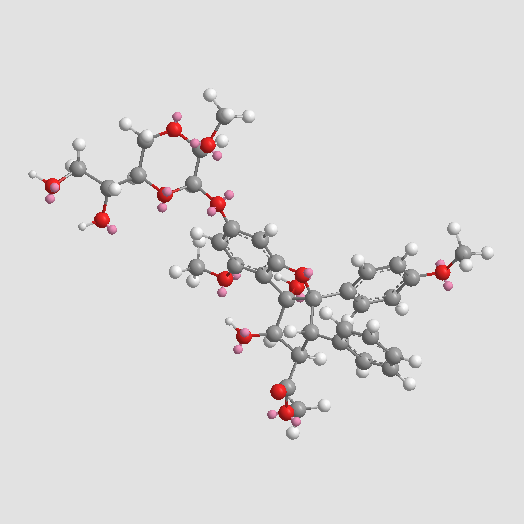 A3818 SilvestrolSummary: Antineoplastic
A3818 SilvestrolSummary: Antineoplastic

